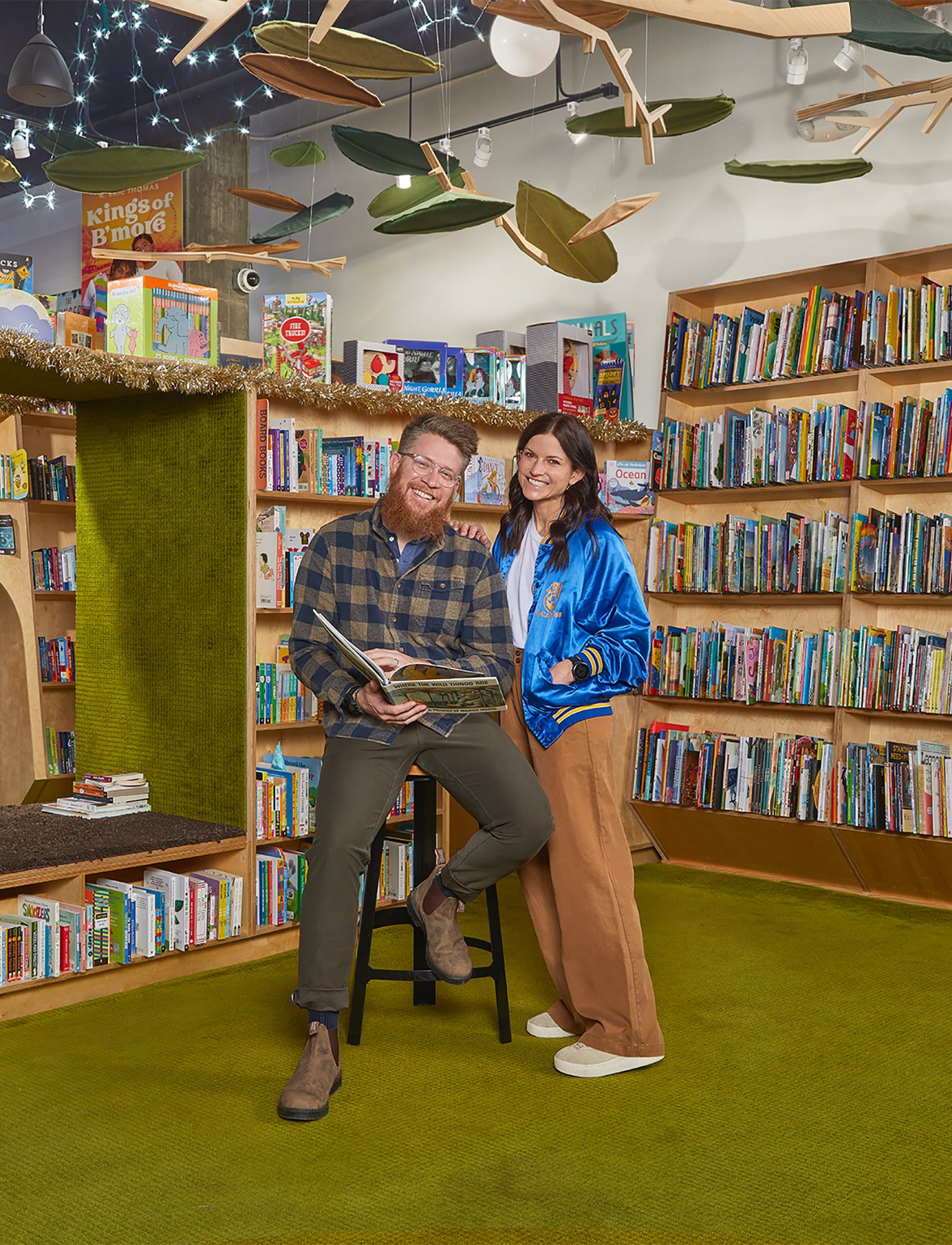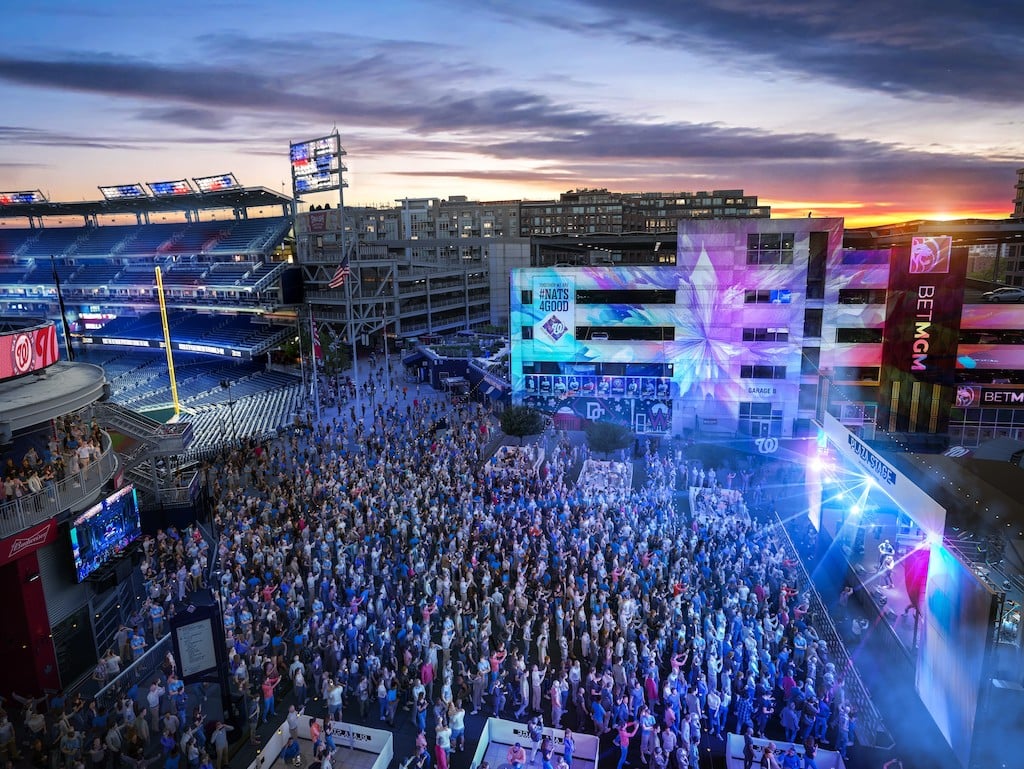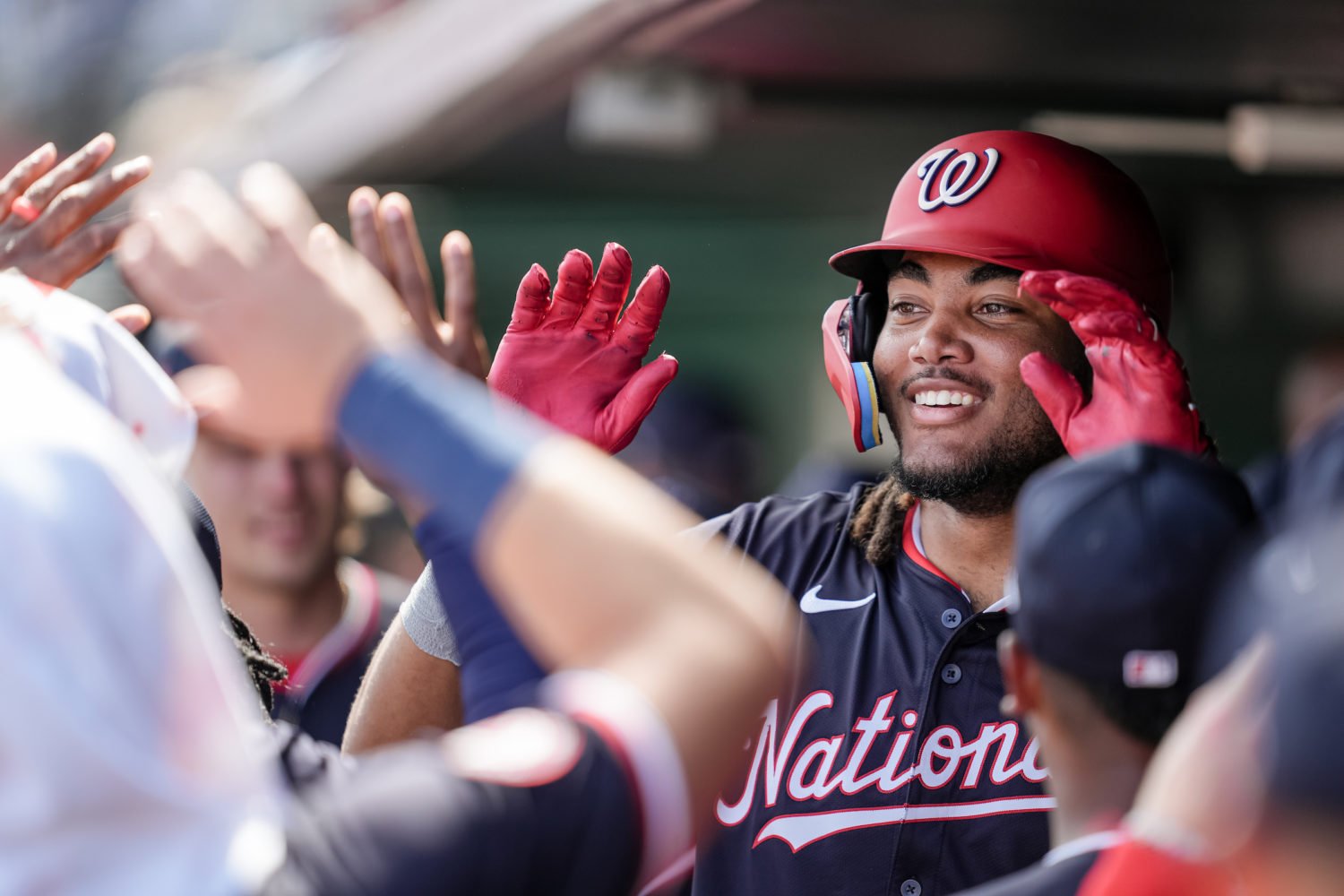After spending parts of five seasons in Washington—and eleven in Major League Baseball—Nationals reliever Sean Doolittle announced in late September that he’s thrown his final pitch. Over the course of his half-decade in the nation’s capital, Doolittle emerged as a fan favorite—and not just because he helped the team secure the 2019 World Series title.
In addition to being a Star Wars fanatic, Doolittle and his wife, Eireann Dolan, have used their platform to advocate for DC Statehood, support LGBTQ+ youth, and promote the work of local artists with disabilities. In 2022, Washingtonian named Doolittle and Dolan as Washingtonians of the Year. Following the news of his retirement, we caught up with Doolittle to discuss his favorite memories from the team, his connection with the city, and his hopes for the future.
What’s your favorite memory of your time with the Nats?
It would have to be the 2019 playoff run and winning the World Series. For me, personally, there are a couple of highlights from that run that are really special. I was on the mound to close out the Division Series against the [Los Angeles] Dodgers, which was a huge upset. Howie Kendrick’s grand slam in the 10th inning was the highlight for sure. And I pitched the bottom half of the inning and got the final outs—and, at the time, the Nationals had never won a postseason series. So we were all very, very aware of how big that was for so many reasons. And to do it in that fashion, and to be part of that, was really cool.
Which of your Nats teammates was the most fun, either in the clubhouse or in games?
It was either Gerardo Parra or Brian Dozier.
What’s Parra like?
He’s a beautiful human being. He just radiates this awesome positive energy. He’s always in a good mood. He was one of the guys that really helped us turn the corner in 2019. We got off to such a bad start, and his whole thing was he wanted the boys to loosen up. A couple of months after he joined the team, it was like the first week of June [2019], we were in Detroit. We’re playing a day game. And typically the mornings before day games are very quiet, we’re slowly waking up. And he, Anibal Sanchez, and Fernando Rodney walk into the clubhouse. They’re all wearing these glasses that ultimately became kind of their trademark. They got them on the street on the way to the game that day—there was like some giveaway outside of the ballpark. And they were they were blasting reggaeton music at like 9:30 in the morning. After the game that night, they led a conga line in the clubhouse after the win. And the rest is kind of history. [Parra] got a lot of guys to loosen up enough to play their best and bring the team together.
You’re a popular person here in DC, but your connection to the city really started before you began playing, correct?
Yeah. At least during two offseasons, when I was with Oakland, [me and my now wife, Eireann Dolan] rolled through here, and we spent several days in DC. I would go back to UVA, [where I went to college], to visit, and this was right up the road. We’re pretty big nerds. So we wanted to check out the museums and walk around the National Mall and kind of do the touristy things.
I read that you and your wife were married on the National Mall?
The day after the regular season in 2017, we eloped and got married. We both had an off day. My wife was still working at the time, and we were getting ready for the [post-season] division series against the [Chicago] Cubs. She rounded up like an officiant and a photographer within like an hour, and we were like, “Yeah, let’s get married tomorrow.”
How did you choose Signers’ Island, on the National Mall, as the location for the ceremony?
It had a quintessentially DC feel. And we had walked enough around the National Mall area to know that it was a beautiful spot.
Both you and your wife seem to have really connected with DC. What is it about the city that enabled you to make that connection?
We got really lucky. Because when you get traded, you don’t really have a say in where you end up. So when we came over here, we were super nervous. But we just fell in love with it. I think the one thing that we found early on that we really liked was the pride that people have for DC. The people that live here are proud to be from here. It’s a very civically and community-involved city. People really care about what’s going on in their neighborhoods, and not in a NIMBY way, in like a we-want-to-make-this-better way. We just found that people are so engaged and, yes, some of it might come from the fact that we don’t have representation in Congress. And so people are really involved when it comes to issues facing the city council and stuff. Because that’s all we got. That’s our one chance we have to make our voices heard and just discuss some of these things.
And then, the more we explored the city, we realized how diverse it is. We realized how good the restaurants are. And it’s got everything. You want to do museums? We’ve got free museums. You want to go hiking? Like, we’ve taken the dog so many times to Rock Creek Park. We absolutely love it. It’s beautiful. It’s just awesome.
What are some of your favorite restaurants in DC?
So, our favorite was a restaurant called Fancy Radish, it’s in the H Street corridor. And unfortunately, they just announced that they’re closing. Our other one is Planta Queen over in West End. My wife is vegan. So both of those restaurants are entirely plant-based. And even though I’m not vegan, and I’m somewhat of a picky eater, they’re absolutely incredible. So like date nights, we’d go to one of those two spots probably.
Now that you’ve retired from the Nats, what’s next for you?
I’m kind of like exploring some options right now. I think I joked in the press conference that I’ve been injured so many times, and I thought my career was over so many times, that I’ve thought about this a decent amount. But I found that later in my career, I had a ton of fulfillment out of like working with the younger guys—teaching and coaching and kind of filling that mentorship role, whether it was in the clubhouse or in spring training or something like that. And I would love to stay involved in the game in some capacity. I still think I have a lot to offer to the game, and I love teaching. So I hope I get to do something with that. But beyond that, I’m not sure. My wife and I have had a lot of discussions. I’m in a big, big, bulky leg brace after knee surgery a couple of weeks ago, so I’m not going anywhere anytime soon. We’re kicking some ideas around. We want to stay really involved in the city.
So we should expect both of you to remain in the city and continue to be actively involved in the community?
Absolutely. This is home, man. This is home.
Do you have a message for your fans in DC?
I can’t say thank you enough. We got so lucky when we got traded over here. After being in Oakland for 10 years, we were really nervous that we’d never find a fan base and a community that accepted us the way that the fans in the East Bay did. And from day one, when we came here, it felt like we’ve been here for a long time. And ever since then, the fans have unconditionally supported me. I had some ups and downs, I battled injuries. And I appreciated their support more than more than I can put into words. We love being a part of this community, it feels like home to us. We bought a house here last year because this is where we see ourselves long-term. We want to be a part of the city and the community and not just as Washington Nationals, but as community members. We want to stay involved and we want to help the city continue to move forward. We just feel really lucky.


![Luke 008[2]-1 - Washingtonian](https://www.washingtonian.com/wp-content/uploads/2017/10/Luke-0082-1-e1509126354184.jpg)
















